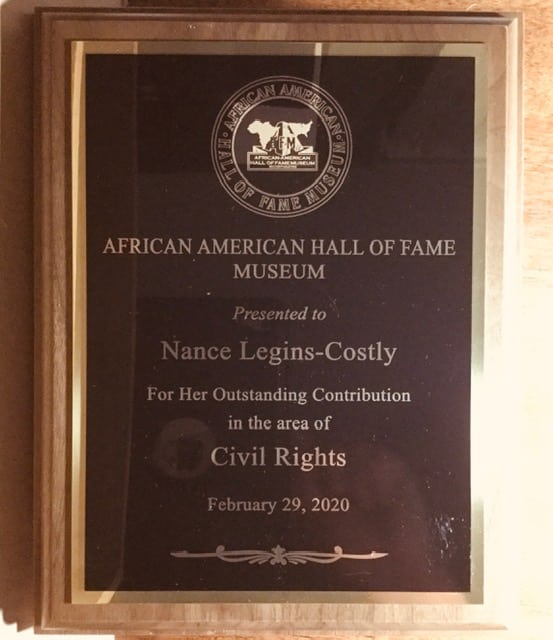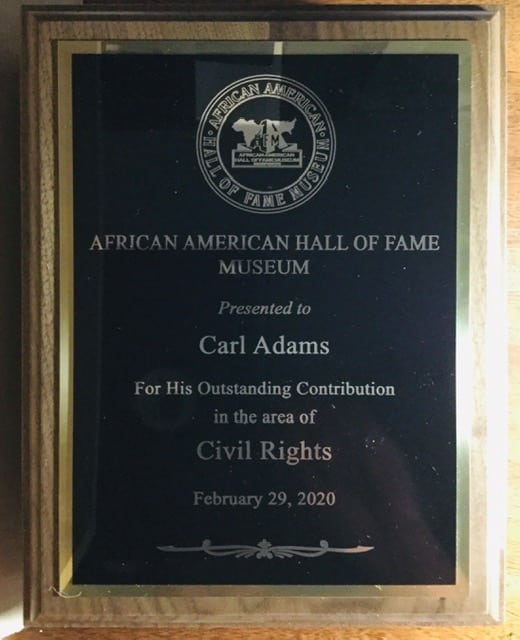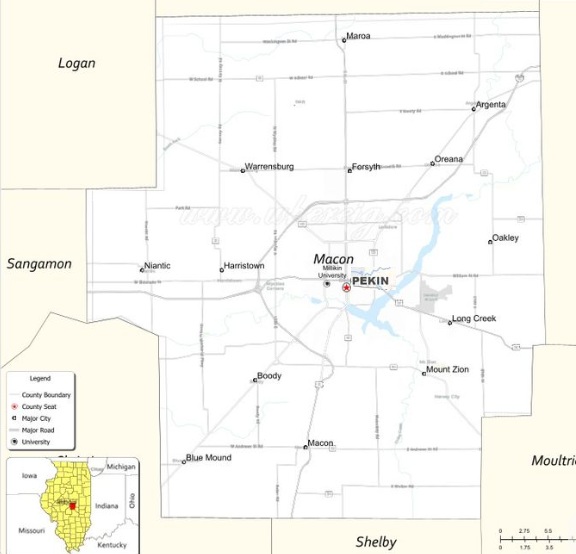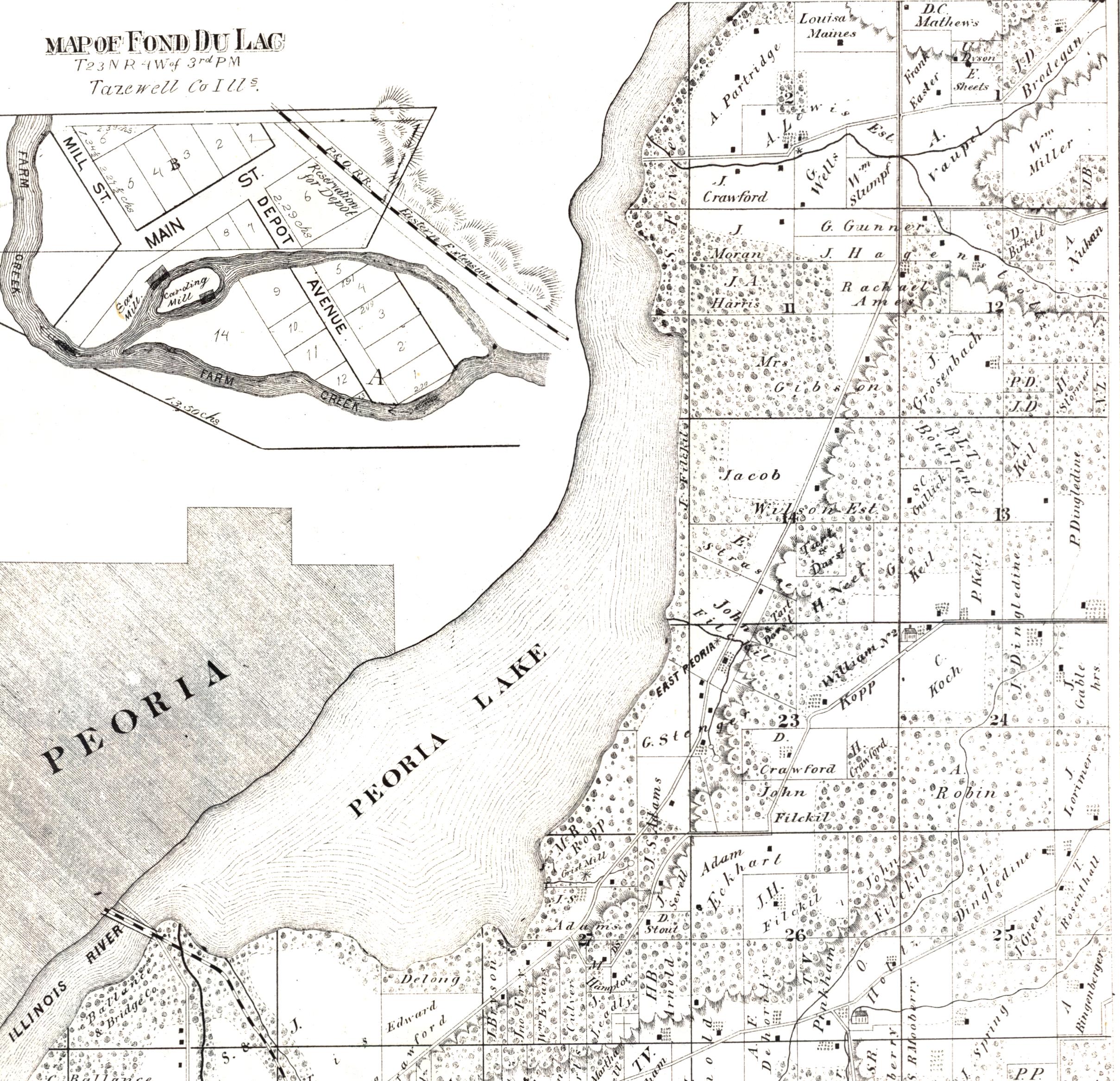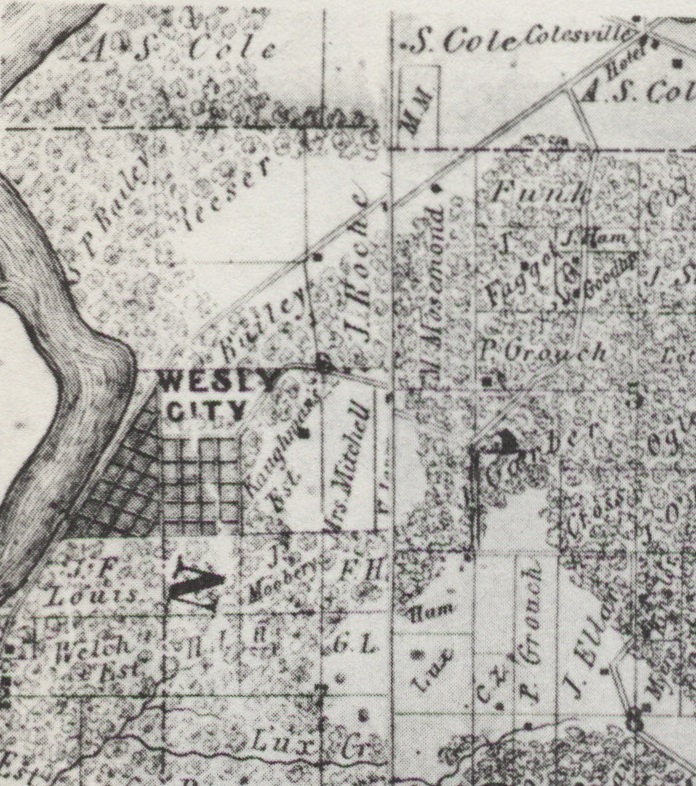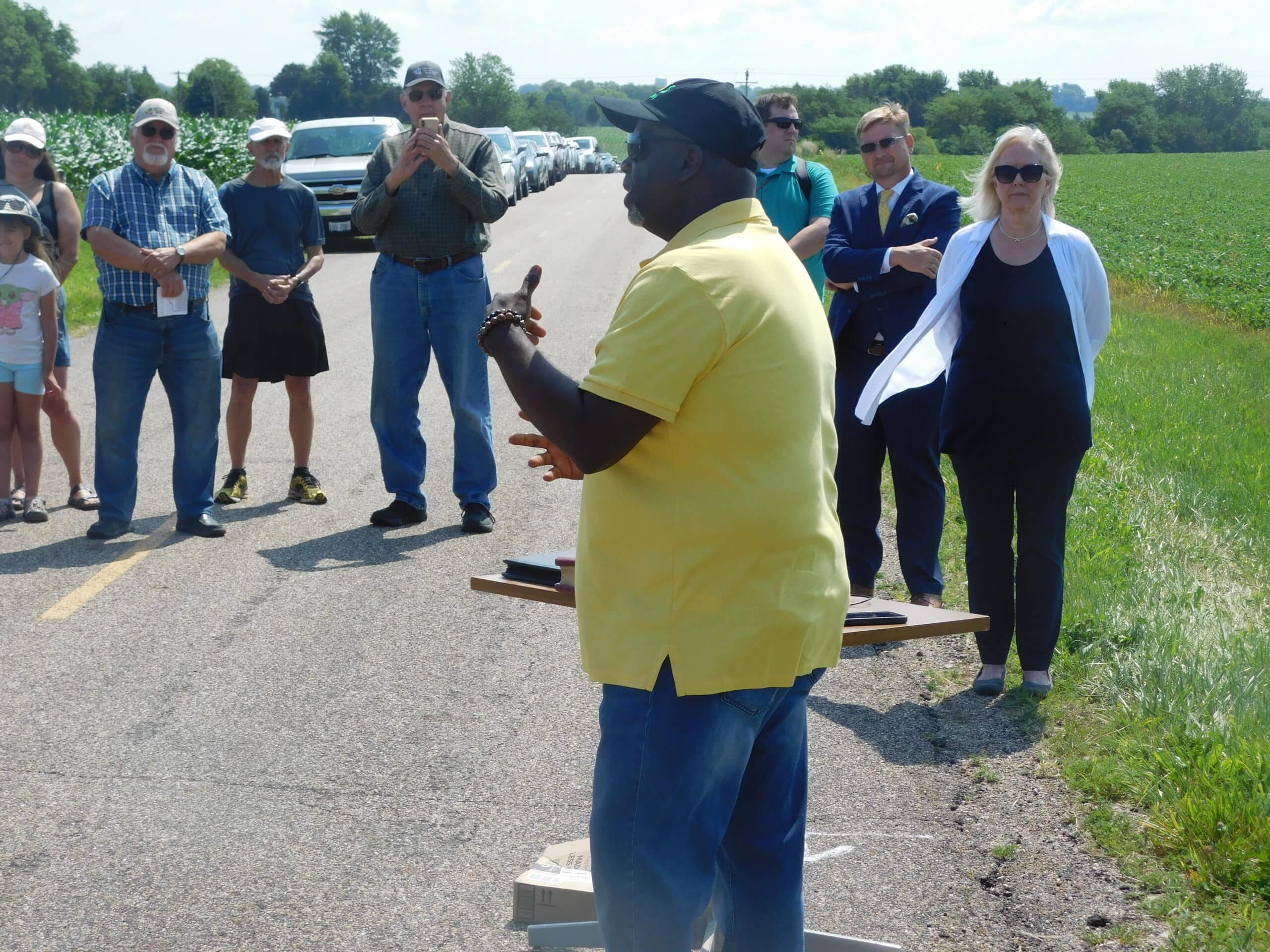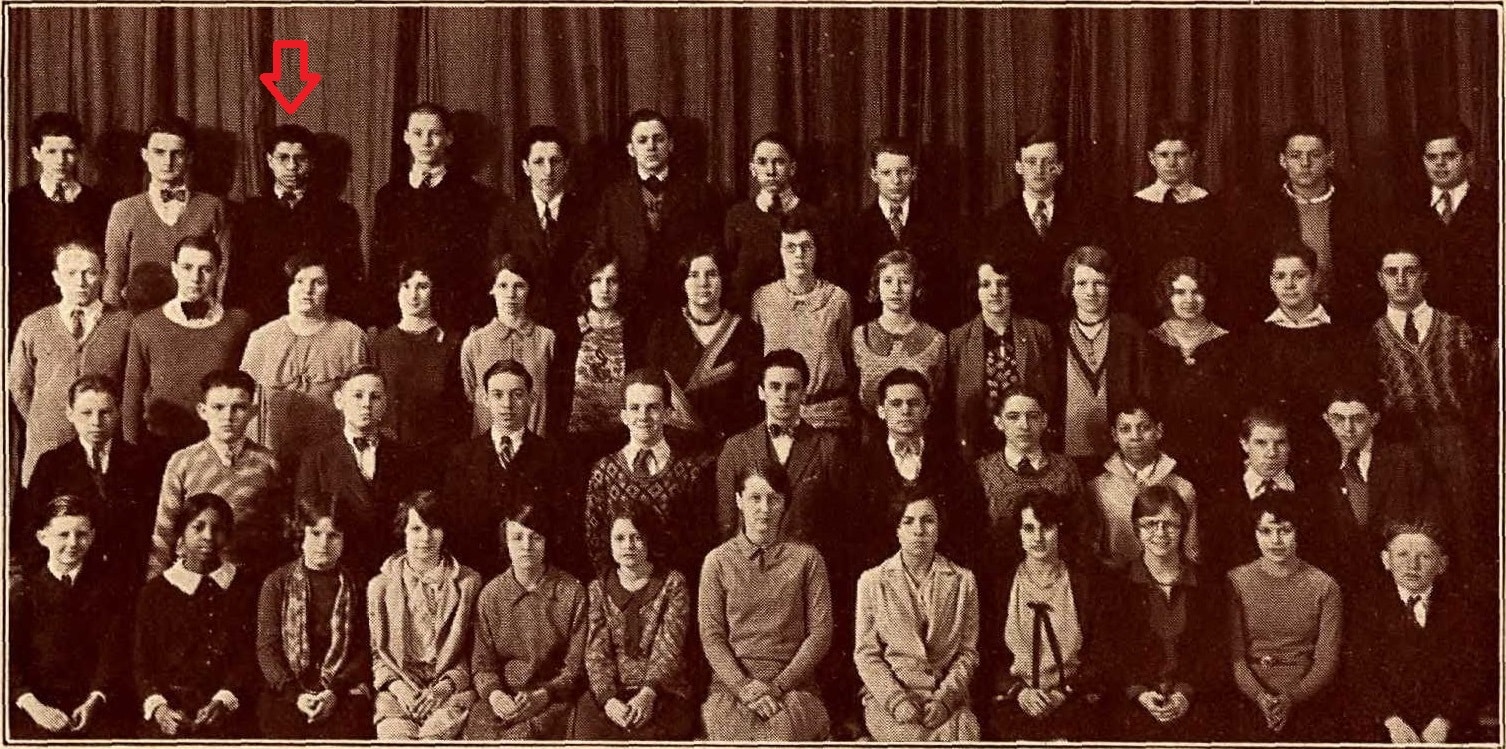On Saturday, Feb. 29, 2020, at the culmination of African-American History Month, the African-American Hall of Fame Museum held a ball at the Peoria Riverfront Museum. Among the highlights of the evening was an award and recognition ceremony, and among those honored as inductees into the Hall of Fame were Nance Legins-Costley of Pekin (formerly of Peoria) and her historian Carl Adams, who has published a book on Costley as well as several papers on Costley and her family.
The stories of Costley and her family, and Carl Adams’ work, have previously been featured here at “From the History Room” several times. Brought to Pekin as an indentured servant (a virtual slave) by Nathan Cromwell, one of Pekin’s co-founders, Costley was steadfast in her efforts to secure legal recognition that she and her children were free. With the aid of an attorney named Abraham Lincoln, that legal recognition finally was obtained for Costley and her three eldest children through the 1841 case of Bailey vs. Cromwell, in which the Illinois Supreme Court handed down a verdict declaring that Costley had never been an indentured servant. In effect, Costley and her three eldest children were the first slaves freed by Lincoln.
Nance Legins-Costley was well-known to Pekin’s pioneer families, and was so highly esteemed that Pekin’s pioneer historian William H. Bates devoted a long paragraph just to her in his original 1870 sketch of Pekin’s history. The paragraph, headed, “A Relic of a Past Age,” says:
“With the arrival of Maj. Cromwell, the head of the company that afterwards purchased the land upon which Pekin is built, came a slave. That slave still lives in Pekin and is now known, as she has been known for nearly half a century, by the citizens of Pekin, as ‘Black Nancy.’ She came here a chattle (sic), with ‘no rights that a white man was bound to respect.’ For more than forty years she has been known here as a ‘negro’ upon whom there was no discount, and her presence and services have been indispensible (sic) on many a select occasion. But she has outlived the era of barbarism, and now, in her still vigorous old age, she sees her race disenthralled; the chains that bound them forever broken, their equality before the law everywhere recognized and her own children enjoying the elective franchise. A chapter in the history of a slave and in the progress of a nation.”
